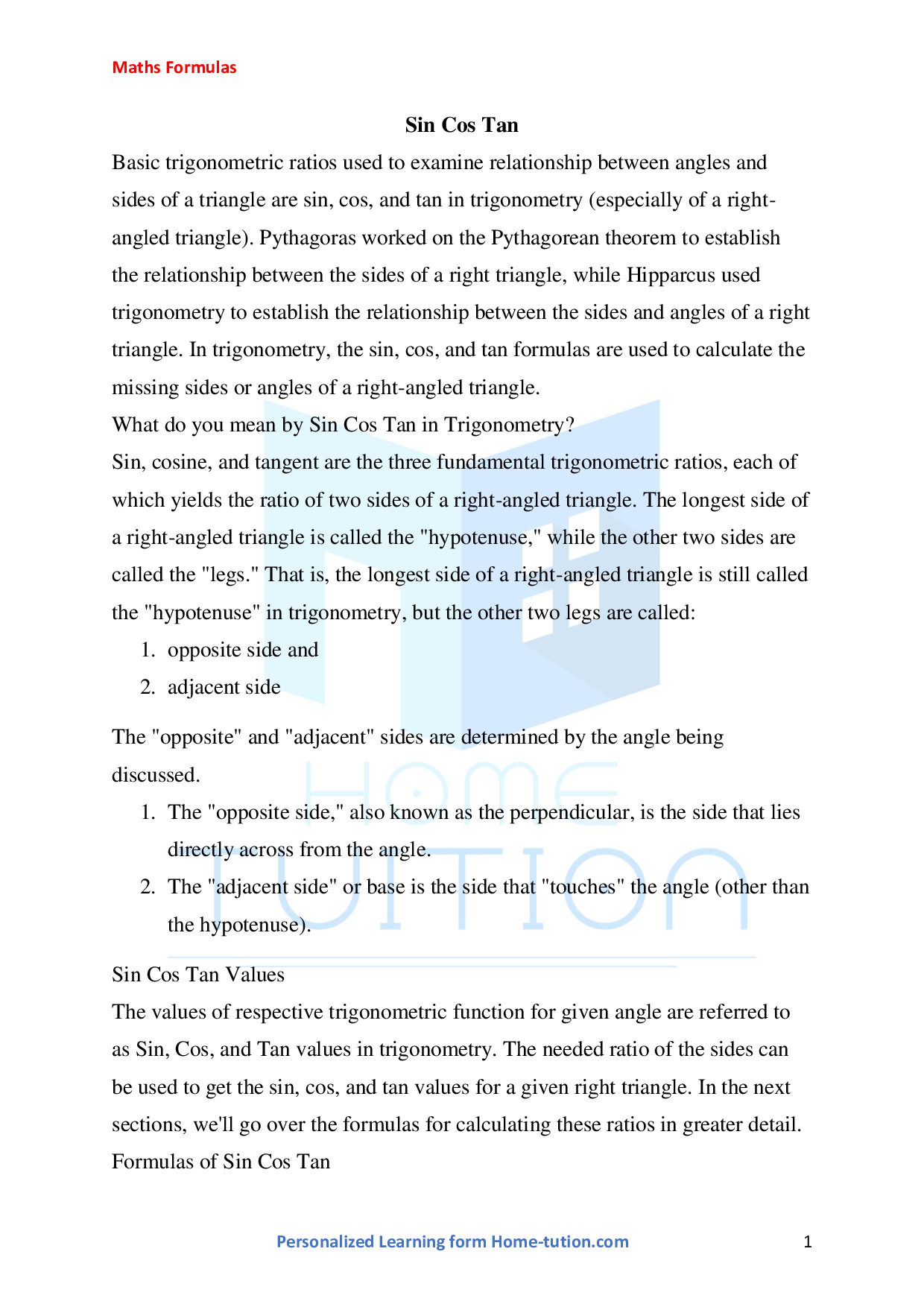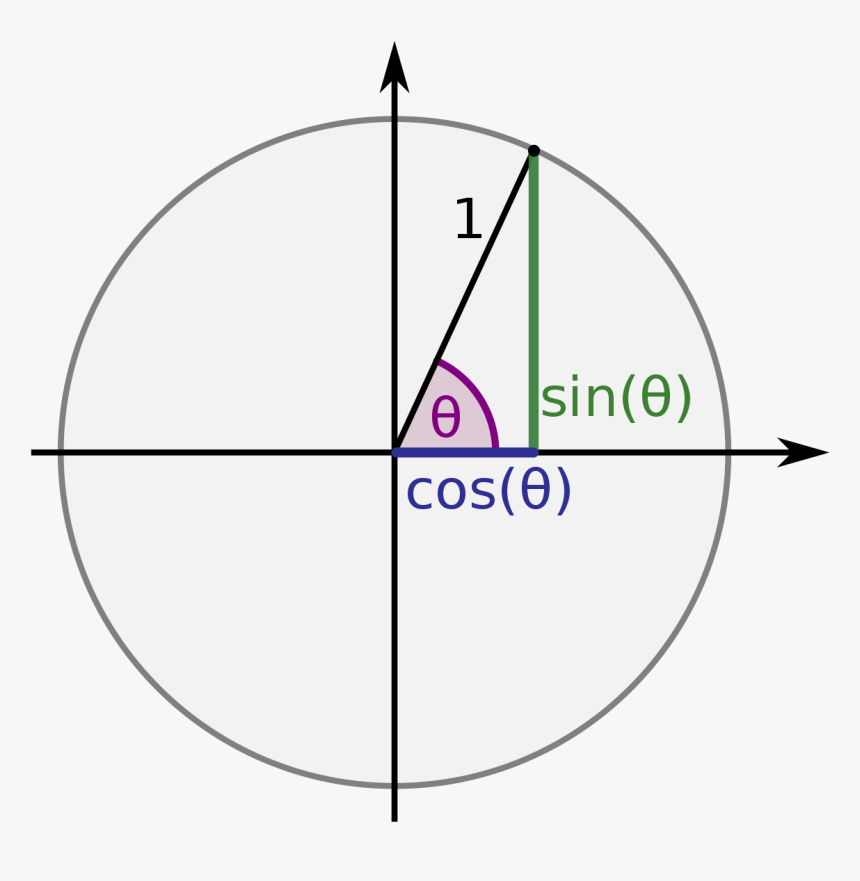Converting From Sin To Cos
Converting From Sin To Cos - Compute answers using wolfram's breakthrough technology & knowledgebase, relied on by millions of students & professionals. To convert a sine function into a cosine function, shift the sine function by 90° (or π/2 radians) to the left. Sine to cosine, cosine to sine, and tangent to sine or cosine. In summary, converting from sin to cos in phasors involves using the phase shift property of sinusoidal functions. To convert sine to cosine, we can use. We'll look at the three primary conversions:
To convert a sine function into a cosine function, shift the sine function by 90° (or π/2 radians) to the left. Sine to cosine, cosine to sine, and tangent to sine or cosine. Compute answers using wolfram's breakthrough technology & knowledgebase, relied on by millions of students & professionals. In summary, converting from sin to cos in phasors involves using the phase shift property of sinusoidal functions. To convert sine to cosine, we can use. We'll look at the three primary conversions:
We'll look at the three primary conversions: To convert a sine function into a cosine function, shift the sine function by 90° (or π/2 radians) to the left. Sine to cosine, cosine to sine, and tangent to sine or cosine. In summary, converting from sin to cos in phasors involves using the phase shift property of sinusoidal functions. To convert sine to cosine, we can use. Compute answers using wolfram's breakthrough technology & knowledgebase, relied on by millions of students & professionals.
sin cos tan sin sin cos tan cos tan sin cos tan sin cos tan und
To convert sine to cosine, we can use. To convert a sine function into a cosine function, shift the sine function by 90° (or π/2 radians) to the left. Sine to cosine, cosine to sine, and tangent to sine or cosine. In summary, converting from sin to cos in phasors involves using the phase shift property of sinusoidal functions. We'll.
cos sin cos sin cos sin cos sin cos sin cos sin cos sin cos sin
In summary, converting from sin to cos in phasors involves using the phase shift property of sinusoidal functions. Compute answers using wolfram's breakthrough technology & knowledgebase, relied on by millions of students & professionals. We'll look at the three primary conversions: Sine to cosine, cosine to sine, and tangent to sine or cosine. To convert a sine function into a.
Sin Cos Tan Formulas What Are Sin Cos Tan Formulas? Examples, sin cos
To convert a sine function into a cosine function, shift the sine function by 90° (or π/2 radians) to the left. Compute answers using wolfram's breakthrough technology & knowledgebase, relied on by millions of students & professionals. We'll look at the three primary conversions: Sine to cosine, cosine to sine, and tangent to sine or cosine. In summary, converting from.
Sin Cos and TanDefinition , Examples & Use
In summary, converting from sin to cos in phasors involves using the phase shift property of sinusoidal functions. We'll look at the three primary conversions: Compute answers using wolfram's breakthrough technology & knowledgebase, relied on by millions of students & professionals. To convert sine to cosine, we can use. To convert a sine function into a cosine function, shift the.
In Terms Of Sin Cos PPT
Compute answers using wolfram's breakthrough technology & knowledgebase, relied on by millions of students & professionals. We'll look at the three primary conversions: To convert a sine function into a cosine function, shift the sine function by 90° (or π/2 radians) to the left. To convert sine to cosine, we can use. Sine to cosine, cosine to sine, and tangent.
Basic Sin Cos Tan Chart Free Download
We'll look at the three primary conversions: In summary, converting from sin to cos in phasors involves using the phase shift property of sinusoidal functions. Sine to cosine, cosine to sine, and tangent to sine or cosine. To convert a sine function into a cosine function, shift the sine function by 90° (or π/2 radians) to the left. To convert.
12.1 sin cos tan PPT Free Download
In summary, converting from sin to cos in phasors involves using the phase shift property of sinusoidal functions. We'll look at the three primary conversions: To convert sine to cosine, we can use. Compute answers using wolfram's breakthrough technology & knowledgebase, relied on by millions of students & professionals. To convert a sine function into a cosine function, shift the.
[ANSWERED] a in sin b Cos SC NO c tan d cot 1 h e sec f csc g 2 sin cos
Sine to cosine, cosine to sine, and tangent to sine or cosine. In summary, converting from sin to cos in phasors involves using the phase shift property of sinusoidal functions. Compute answers using wolfram's breakthrough technology & knowledgebase, relied on by millions of students & professionals. To convert a sine function into a cosine function, shift the sine function by.
Sin Cos and TanDefinition , Examples & Use
In summary, converting from sin to cos in phasors involves using the phase shift property of sinusoidal functions. To convert a sine function into a cosine function, shift the sine function by 90° (or π/2 radians) to the left. Sine to cosine, cosine to sine, and tangent to sine or cosine. We'll look at the three primary conversions: Compute answers.
Sin Cos, HD Png Download kindpng
Compute answers using wolfram's breakthrough technology & knowledgebase, relied on by millions of students & professionals. In summary, converting from sin to cos in phasors involves using the phase shift property of sinusoidal functions. To convert a sine function into a cosine function, shift the sine function by 90° (or π/2 radians) to the left. We'll look at the three.
To Convert A Sine Function Into A Cosine Function, Shift The Sine Function By 90° (Or Π/2 Radians) To The Left.
In summary, converting from sin to cos in phasors involves using the phase shift property of sinusoidal functions. We'll look at the three primary conversions: Sine to cosine, cosine to sine, and tangent to sine or cosine. Compute answers using wolfram's breakthrough technology & knowledgebase, relied on by millions of students & professionals.







![[ANSWERED] a in sin b Cos SC NO c tan d cot 1 h e sec f csc g 2 sin cos](https://media.kunduz.com/media/sug-question-candidate/20231109180529287674-5836419.jpg?h=512)

